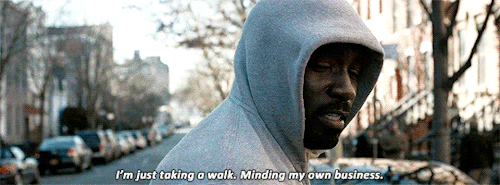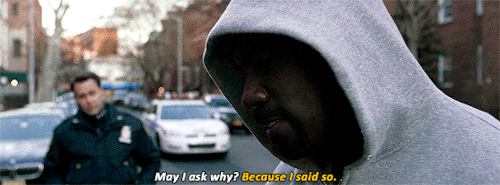ida-b-wells-b-whippin-yo-ass:roamingblizzard:huele-bicho:pakeeztani:ryagosling:Good morning, is ther
ida-b-wells-b-whippin-yo-ass:roamingblizzard:huele-bicho:pakeeztani:ryagosling:Good morning, is there a problem? No. You tell mewhen they ask you for id ask if youre being detained and what the probable cause is, i really wished they taught what rights you have as a citizen because you have so many that no one knows aboutmost times those rights ain’t shit to a racist cop^^^^^^These tips won’t be helpful in all instances or in all places, but some things I do know:-The vast majority of police cruisers and police radios come equipped with GPS –So if approached by an undercover officer who isn’t visibly displaying a badge or nameplate, try to remember as much as possible the street, time of day, day of the week, description of the officer, etc. where you were stopped. This is information an outside reporting agency can use to find that specific officer, because they most likely had a police radio on them at the time.-Most police department require officers to always display their name plate and badge number when in uniform – when they don’t, if you’re able and it’s safe, get photos of this. Officers in violation (in the jurisdiction where I used to work) would face a $5,000 fine for each missing item, it could total 10k if they were missing both. -If you ever have to report a specific officer, do not go to the district station house where that officer works. The investigation will get squashed. If you want a chance to get the complaint heard, report it in a different district house. The chances of it disappearing lessen because the officials in that district don’t have a personal relationship with that officer. –At the same time, e-mail the chief of police for that department directly. Being chief is a super political position, and investigations that start from the top are harder to cover-up or make disappear. –CC the mayor on this e-mail at the same time. The Chief works so long as the mayor keeps them employed.-Look up and try to locate an Office of Police Complaints in the area where you live. Not every place has them, but most major metropolitan areas do have one, though they can at times lack bite and real ability to change anything, though they also tend to have connections with groups who can get something done.–If you have twitter, tweet that complaint to the chief, that police department, and media entities if you feel safe doing so.–If an officer has your ID, and you ask if you’re being detained, and they say no but still have your identification then you are being detained, because you’re not going to logically leave a situation without your identification.–Being detained comes from perception of the detainee, not the person doing the detaining. Things that could lead an individual to believe they are detained/stopped: –Presence of multiple officers –Language used when contacted by the officer –Demeanor of the officer making the contact –The officer resting their hand on any weapon on their belt. ASP, OC, Firearm –Display of a weapon, even when not directly pointed at a person–If you feel you have been stopped then it’s a stop, regardless of the the officer’s perception.–Many department require officers to write a report for any stop conducted where they have to justify the reason for the stop. If you’re able, make sure you get your report numbers. These reports are public, and you can pick up a copy to make sure what was written, and connected to your name, is factual. –If you are ever arrested, do not say a word. Nothing, outside of, “I would like a lawyer.” I’m talking from the moment the handcuffs are placed on you. Say that one sentence and nothing else. –I say this, because we were trained after placing someone under arrest to not read them their miranda rights, but to also not ask any questions about the crime for which the person was placed under arrest. –This means that anything the person said from the moment they were placed under arrest, taken to the station, and formally read their Miranda Rights by a detective, was admissible in court as a spontaneous utterance. –Your Miranda Rights don’t become active once you’re read them, but once you invoke them. So invoke them immediately, even if the officer arresting you hasn’t read them. –Find the Standard Operating Procedures (SOPs) or General Orders for the police department where you live. Learn them. They expect you not to know them, especially when it comes to First Amendment Demonstrations.This doesn’t address the root issue, but it’s some of the things I learned from my time on a police department. -- source link
#queue



